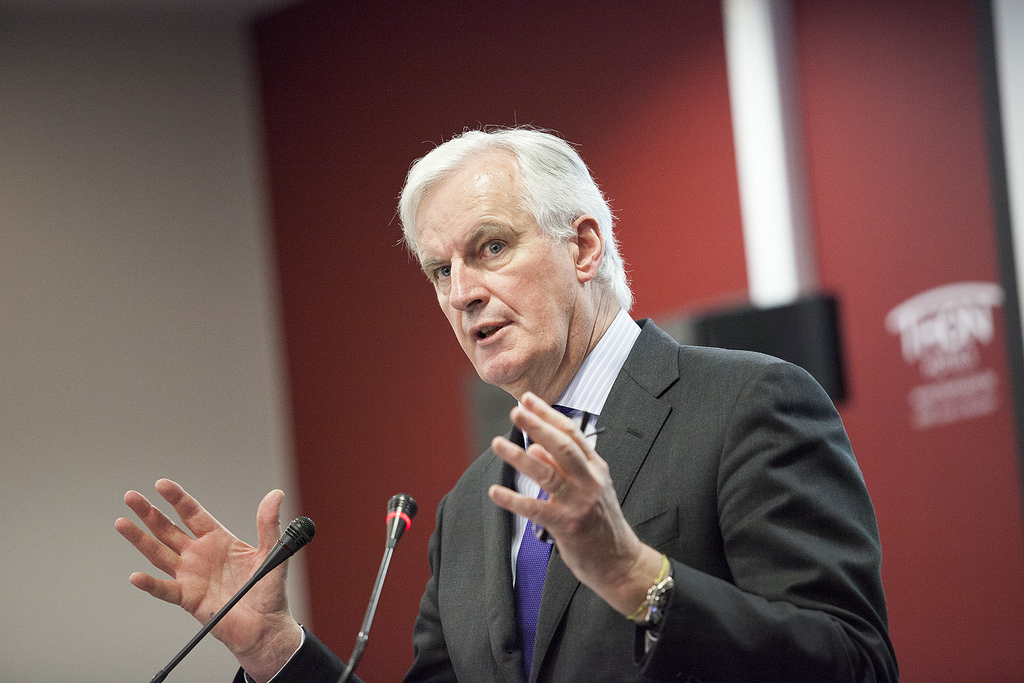The year 2016 – with the UK referendum, the change of power in Washington, geopolitical tensions, terrorist attacks, and the rise of populist parties – will perhaps be seen as a time of awakening. 2016 could become the moment when the EU realised that it had to stand up for itself. And that nobody would do for us what we don’t do for ourselves. In 2012, the UK Prime Minister published a table to show his strong support of the Single Market and incidentally his support for the Commissioner in charge of the Single Market. It shows that, in 2050, there will be no European countries left in the G8. But by remaining together, the 27 will stay, in the long term, in the top 5.
One voice
We need to continue speaking with one voice in the world. Even though we speak many different languages, as the novelist Fernando Pessoa said. Otherwise we will not sit at the table where decisions are made. And we also need to act together to build a stronger Europe.
The Eurozone needs a more complete Banking Union and a fiscal capacity with a finance minister. The EU needs a more integrated Capital Markets Union. Such increased risk sharing needs common rules and common enforcement. (…) And we need more solidarity in our Union – with a humane and efficient migration policy, and a strong pillar of social rights, as agreed last Friday in Gothenburg.
This stronger European Union will want to have a close relationship with the UK. There are three keys to building a strong partnership with the UK.
- We need to agree on the terms for the UK’s orderly withdrawal. (…)
- Integrity of the Single Market. (…)
- Need to ensure a level playing field between us. (…)
If we manage to negotiate an orderly withdrawal, fully respect the integrity of the Single Market, and establish a level playing field, there is every reason for our future partnership to be ambitious. This is our preferred option. This is why we have started internal preparations with Member States. To be ready to talk about the future, as soon as we will have agreed on how to settle the past. The EU will of course be ready to offer its most ambitious FTA approach.
Work together
And the future partnership should not be limited to trade. It should be based on our common values. We need to work together to protect the security of our citizens, to combat crime and terrorism, in Europe and globally and logically we will need to cooperate on foreign and defence challenges. But in none of these fields, the EU will wait for the UK. We must continue to advance. We are negotiating new free trade agreements in addition to the ones we already have with 60 countries.
Continuation of development internal market, solidarity and defence cooperation
We will continue to develop our internal market and to make it fit for digitalisation; we will step up our investment in research and innovation; we will continue to use the strength of this internal market to shape globalisation. We will continue to show solidarity to refugees, while better protecting our external borders and tackling root causes of migration, notably by continuing our development policy, in particular with Africa, where the EU and the UK will keep a mutual interest. And we are developing our defence cooperation, with unprecedented steps taken to set up a European Defence Fund and, last week, to finally launch the Permanent Structured Cooperation on which I worked closely with Chris Patten at the time – a very different time.
Turmoil
Against the backdrop of global turmoil in an interconnected world, Europe is today more necessary than ever. The future of Europe is more important than Brexit. (…)
Summary of the speech by Michel Barnier at the Centre for European Reform on ‘The Future of the EU’. You can read the complet version of the speech on the website of the
Source: http://europa.eu



